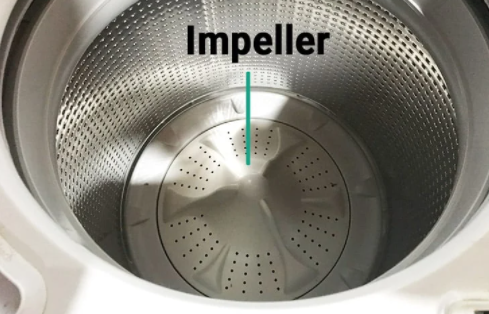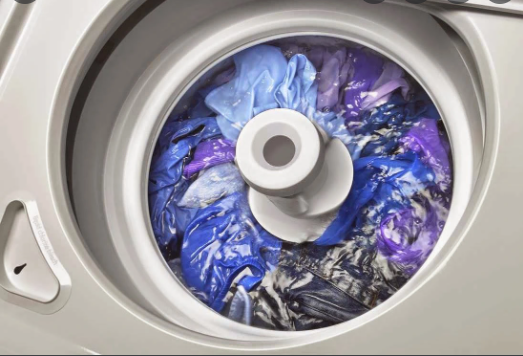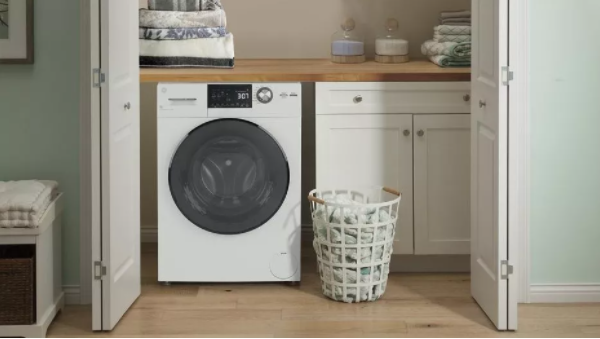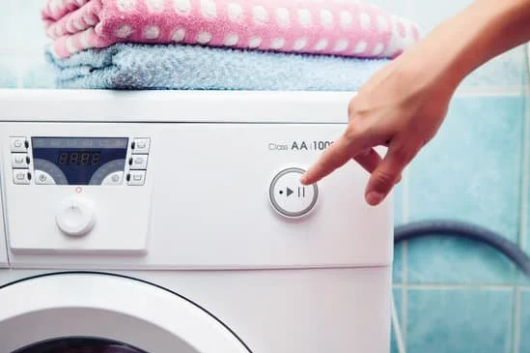The washing machine impeller is an important component of a washing machine’s drum, in charge of creating movement and diluting grime and dirt that would otherwise accrue on the clothing in the washer. If you’re having problems with your washer drum or simply want to learn more about the structure of washing machines and what makes them work, then keep reading for some valuable advice about what is an impeller in a washing machine and how it works!
You should be familiar with all of the parts of your washing machine, not just the obvious ones that come to mind when you think of the appliance. One of these components is the impeller in a washing machine, which may appear to be doing its job but has far more applications than you might think at first glance.
If you want to learn more about what is an impeller in a washing machine and how it can help you with your laundry, Continue reading to learn all you need to understand about this important component of the washing machine.
An Impeller Is an Important Part of a Washing Machine

In some washing machines, an impeller is a low-profile rotating hub that replaces the agitator. As the impeller rotates, the vanes create turbulent currents in the wash water. These currents, in theory, move the clothes through the water and clean them without the impeller coming into physical contact with the clothes. Because the impeller occupies less space in the center of the drum, impeller machines are easier to load than agitator machines.
Impellers are reduced cones or discs which spin as well as rotate to rub cloths against one another. They also use less motion and water than an agitator-equipped washer. An impeller is a component of a pump or compressor that rotates at a high rate and acts as a propeller to increase the pressure and flow rate of a fluid.
Impeller’s High-Efficiency

Impellers are frequently found in high-efficiency washing machine models, which use less water and rotate at higher speeds during spin cycles than traditional models. Higher spin speeds extract more water from the clothes, resulting in shorter drying times. These washer models are significantly more efficient than traditional models due to the combination of water and energy savings. However, because the impeller does not contribute to the machine’s efficiency, an impeller machine is not necessarily more efficient than an agitator machine unless other efficient features are included.
Performance of the Impeller
Impeller machines may be less damaging to clothing, but due to their gentler motion, they may not clean clothes as thoroughly as agitator machines. Some impeller models are also prone to tangling clothes as they rotate, which can throw the machine off balance, especially during the high-speed spin cycle of high-efficiency machines.
The Advantages of Using a Washer with an Impeller
- Rubs clothes together to provide a thorough, gentle clean
- More space in the basket for bulky items and easier loading/unloading
Are The Impeller And Agitator The Same Thing?

Top-loading washing machines have both impellers and agitators, but how they work and move the clothes differs greatly.
A low-profile cone in an impeller washer spins or rotates, rubbing clothes against each other to clean them. An agitator washer, on the other hand, has a tall finned, or vaned spindle in the center of the washtub that agitates or twists against the clothes to help break down stains and loosen soils.
So, agitator or impeller washers, which is better for you? Learn the distinction between the two kinds of washers to help you determine which machine is right for you.
Agitator Washers: How They Work
Agitator washing machines, which have been on the market for many years, are the more familiar version of a top loader. This washer agitates clothes by twisting them back and forth against a spindle, resulting in a thorough cleansing action.
These washers typically include the following features:
- Agitating – Rubs against clothes to help break down and remove stains and soils.
- Spraying – Soaks garments by reusing water from the wash/rinse cycle.
- Wash Basket Rotation – Rotates the wash basket for a thorough clean.
Impeller Washers: How It Works
Hopefully, you now understand what is an impeller in a washing machine and how it operates. An impeller-driven washing machine uses less motion and water than an agitator-driven washer. It is designed to drive clothes from the outer rim of the wash basket to the center, using a small amount of water to optimize friction. This is what contributes to a gentle, efficient, yet thorough clean.
They also typically clean with a variety of wash motions, such as:
- Spraying action- Soaks clothes with recirculated wash/rinse water.
- Wash basket action- Rotates for a powerful clean.
- Impeller action- Gently rubs clothes against each other using low-profile cones, wheels, fins, or discs that rotate.
Which Is Better For Washing: The Agitator Or The Impeller?
Washing machines with impellers wash your clothes better than those with agitators. That is, front load washers or top load washers without an agitator will generally do a better job of removing tough stains and dirt from your clothes.
Why? When an impeller works, it turns the clothes inside a washing machine in circles, causing them to spin constantly and use friction to rub the clothes against each other to clean them. Agitator washers rely solely on the agitator to clean, and the clothes must come into contact with the agitator to be thoroughly cleaned. An impeller washer is the better option for stains and extremely dirty clothes.
Another factor to consider with agitator-equipped washing machines is the potential for damage to your clothes. Because of how rough the agitator is with fabrics, top load washers are known to cause damage to your clothes over time.
What Is Best For Your Family?
Both agitator and impeller washers are ideal for removing stains from your favorite t-shirt, ensuring your child’s school clothes are spotless, or sanitizing your newborn clothes.
Both machines have high cleaning and performance efficiency, as well as resource efficiency, comfort, ability, as well as innovation. Impellers, on the other hand, use slightly less sufficient water to their function as well as elevated rotating speeds, resulting in laundry loads that require less drying. When deciding which washer to buy for your home, it all comes down to personal preference.
Care Recommendation
When washing machines with agitators and impellers are properly loaded, they perform optimally. Make sure the clothes are evenly distributed around the central spindle or wash plate in both cases so that the wash basket is balanced. Unbalanced loads do not clean as well as they should and can damage the machine.
Are Impeller Washers Useful?
Washers to highest impellers Low groundwater levels should not be taken lightly. Impeller washers are using a bit of water to increase the pressure of the clothes rubbing together. This is what contributes to gentle, efficient, and thorough cleaning.
How Do You Know If Impeller Is Faulty?
Water cannot be pumped inside the engine due to a faulty impeller, causing it to overheat. The boat engine overheating when attempting to accelerate, a loss of flexibility in the impeller vane roots, and physical wear and tear such as cracks in the impeller vane roots, melted or worn vanes are all signs of a bad boat impeller.
Conclusion
When you hear the word ‘impeller,’ you might think of the small propeller-like things that are attached to engines to keep them moving, but in the case of washing machines, an impeller does something completely different. To learn more about what is an impeller in a washing machine and how it works, continue reading to learn everything you need to know about this component.
Frequently Asked Questions
Q: How long should a washing machine’s average lifespan be?
A: According to Consumer Reports, washing machines have an average lifespan of 10 years. If your washer is nearing the end of its life or has been having issues, here are some warning signs.
Q: How long will the impeller last?
A: All impellers should be replaced every three years at the very least. Some will not last that long depending on a variety of factors, including how frequently it is used. If it is used infrequently, it will deform and dry rot. If you use it frequently, it will wear out from spinning around in its housing.
Q: Do I grease my impellers?
A: Many manufacturers recommend smearing it with grease. Spreading grease or lubricant (as recommended by the manufacturer) on the faceplate will aid in avoiding dry start-up friction where the impeller moves against the plate. It is frequently difficult to remove the old impellor.
Q: When is the best time to replace my impeller?
A: In general, a 5-year period should suffice for the majority of people. Mercury recommends changing the impeller every 300 hours, according to the owner’s manual. If you have some mechanical skills, you should be able to do it yourself.
Q: What is the difference between propellers and impellers?
A: A propeller is a fan that pushes against a fluid to propel it forward it converts rotational motion into linear motion. An impeller is a rotor that generates sucking force and is a component of a pump.
